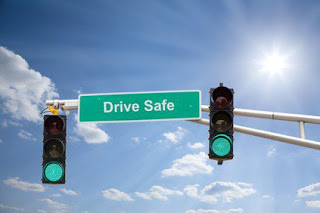The World Day of Remembrance for Road Traffic Victims
According to the World Health Organization (WHO) there are 1.2 million deaths and 50 million injuries yearly from road traffic incidents. The physical, psychological, emotional and economic devastation resulting from road traffic injuries is immeasurable. It appears that with each passing year road users become more reckless and daring. Driving on our roads has become a life and death experience. Some of our drivers appear both suicidal and homicidal. There are those drivers who seek attention at all cost; such users of the roads are into stunts and daredevil experiences to the detriment of other road users. We need not mention those who drive under the influence of alcohol or other mind altering drugs. Jamaica and the global community have paid and continue to pay a high price for the uncaring and insensitive behaviour of some of our motorists. No one needs to single out any particular set of motorists; however, we all know those who are at the top of the acrobatic and dangerous list. Disturbingly, there are those drivers who behave as if the roadways are their personal toys. One has to give God thanks for mercy’s journey at the end of each day. The pain from losing a loved one in a motor vehicle or road accident is immense; for some families the pain never goes away. One can argue that risky and reckless driving accounts for a significant number of our accidents on our roads. Oftentimes the victims and their families are forgotten. Sadly, the narrative too often focuses on the dangerous driver. Thankfully to the World Day of Remembrance for Road Traffic Victims the stories of victims can be heard. The United Nations on October 26, 2005 adopted the day as the World Day of Remembrance for Road Traffic Victims. The World Day of Remembrance for Road Traffic Victims is commemorated on the third Sunday of November. The day is set aside to remember the many millions who have been killed and seriously injured on the world's roads and to acknowledge the suffering of all affected victims, families and communities. The cumulative impact of the pain and suffering to humanity of the tragic loss of life is incalculable. The Day has become an important tool for governments, non-government organizations NGO's and all those whose work involves crash prevention or response to the aftermath of crashes. In Jamaica the Road Safety Unit promotes and fosters an orderly and disciplined traffic culture that is conducive to the development of a safe traffic environment, through the conceptualization, design and dissemination of a sustained programme of public information, education in schools, legislation, accident information and research. Sadly, in Jamaica we have had over 368 lives lost in road traffic accidents since January. The objectives of WDoR 2020 are to provide a platform for road traffic victims and their families to remember all people killed and seriously injured on the roads; acknowledge the crucial work of the first responders; to highlight the trivial legal response to culpable road deaths and injuries; advocate for better support for road traffic victims and victim's families, promote evidence-based actions to prevent and eventually stop further road traffic deaths and injuries.
The Way Forward
One such international partner is the Global Youth Coalition for Road Safety. The entity believes that global and local action is needed to make the world’s roads safer for everyone. It is clear behaviour modification will be required in terms of changing behaviours globally. We must use our roads in a respectful and safe manner in order to make our roads safer for everyone. As road users we all have a role to play in reducing the carnage on our roads. One life lost on the road is one life too many. Let us all recommit ourselves to be more responsible road users on this World Day of Remembrance for Road Traffic Victims.
In the words of Robert James Thomson, I can’t see a problem with imposing fines on drivers who violate traffic safety laws. The speed limit is the speed limit. A red light means stop. These things haven’t changed since people got their driver’s licenses.
Wayne Campbell is an educator and social commentator with an interest in development policies as they affect culture and or gender issues.
waykam@yahoo.com
@WayneCamo
#WDOR2020 #RoadSafety
©



Comments
Post a Comment